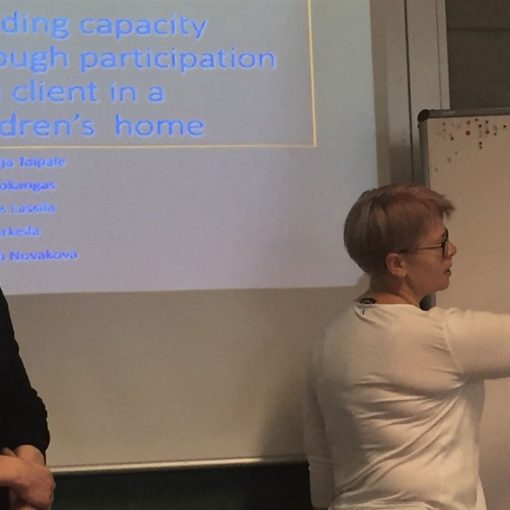Four paramedic students from LAB University of Applied Sciences were on an internship in UK emergency Medical Service (EMS) in autumn 2023. Students were able to compare the work of paramedics between Finland and UK. One aspect was a student guidance which is an essential part of the students’ professional growth during their studies. Especially in health care, employees are required to have a wide-ranging and general competent professional competence and they are required, among other things, to have the skills to problem solving, information acquisition and self-control. A qualified student guidance is essential to fulfill these demanding.
Student’s experiences of guidance during the internship
Supervision competence includes creating a reflective supervision relationship, setting individual competence goals and guiding them to take responsibility, guiding comprehensive nursing work, supporting the student’s learning process, giving and receiving feedback, and implementing student-oriented evaluation. (Tuomikoski et al. 2018.)
During the internship in Manchester, students experienced that the guidance they received made them to adapt quickly. In the UK, paramedic students can work with different crews who will provide the supervision during the practice, and this allows the student to learn different techniques to tackle the same task from different staff and interact with the professionals in diverse ways. As compared to Finland, the student is assigned with one or two supervisors during an internship. The supervisor helps to plan the competency objectives and plans with the student how to reach the objectives.
![[Alt text: a smiling woman standing on the street, behind her several parked paramedics cars.]](https://blogit.lab.fi/labfocus/wp-content/uploads/sites/8/2024/01/73_2024_Student-guidance-during-clinical-placement-in-the-UK-1024x703.jpg)
Interaction and communication are a key
It is known that nursing students need support and opportunities to talk about emotional experiences during internship. Teachers, supervisors, and students need to be aware that students might experience emotionally difficult situations, and that the students need time for reflection and support. (Weurlander et al. 2018.)
In Finland, the students have assigned internship supervisors. In Britain the supervisor changed in every shift. This may reduce the emotional support the student receives. However, students experienced that working with different staff members in diverse ways and pick new skills and ways of doing work assessments differently was beneficial. The supervision of the students during the shift was excellent and helped them achieve their objectives.
The student-supervisor interaction in the UK is highly effective as the communication level between the students and supervisors is excellent. The interaction was student centered, focused on achieving the learning goals. The staff were friendly and socially adept; also, multiculturally.
To conclude, the experiences and adventures that we received as students from participating in the basic paramedic placement was excellent and satisfactory.
Monalisa Maziwisa is a paramedic student at LAB University of Applied Sciences.
Katja Kylliäinen works as senior lecturer in faculty of health care and social services at LAB University of Applied Sciences.
References
Tuomikoski, A-M., Ruotsalainen, H., Mikkonen, K., Miettunen, J. & Kääriäinen, M. 2018. The competence of nurse mentors in mentoring students in clinical practice -A cross- sectional study. Nurse Education today. Dec; 71:78-83. doi: 10.1016/j.nedt.2018.09.008.
Weurlander, M., Lönn, A., Seeberger, A., Broberger, E., Hult, H. & Wernerson, A. 2018. How do medical and nursing students experience emotional challenges during clinical placements? International Journal of Medical Education. Mar 27:9:74-82. doi: 10.5116/ijme.5a88.1f80.




